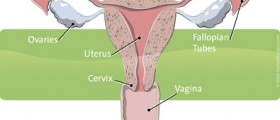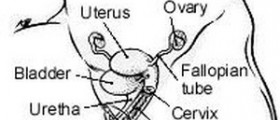
Definition of the Procedure
Bilateral oophorectomy is a surgicalprocedure which involves the sequential or simultaneous removal of both ovariesin a woman. There are different causes which may call for this type of surgeryincluding the prophylaxis against cancer, an ovarian cyst, endometriosis,different types of benign diseases of the ovaries or cases of malignancies. Inmost patients, this type of surgical procedure is usually performed alongside withanother type of surgical intervention called hysterectomy. Hysterectomy is asurgical intervention in which the woman’s uterus gets removed as well. There area large number of women who suffer from a premature loss of ovarian functionwhich occurs due to bilaterally oopherectomy performed before the naturalmenopause occurs.
Consequence of the Procedure
Even though bilateral oophorectomy is performed in order totake care of certain medical problems, it still may be associated with a widearray of different long term consequences and complications. Women who have toundergo oopherectomy before they reach their natural menopause are the oneswhich are most likely to have further medical complications. A large number ofcases treated with bilateral oophrorectomy may lead to the development of cardiovasculardiseases. The risk is much larger than in women who are premenopausal. Women whohad bilateral oophorectomy sometimes use estrogen in order to reduce the riskof ischemic heart disease. On the other hand, bilateral oophorectomy may alsobe associated with a somewhat increased risk of coronary heart disease. The samecan be said for increased risk of stroke as well. Some extreme cases mayalso be involved in an increased risk of premature cardiac death. It shouldbe pointed out that bilateral oophorectomy in general may be involved with increased risk of different medical conditions such as impaired sexualfunctions, different sorts of psychiatric symptoms, fractures, osteoporosis,Parkinsonism, cognitive impairments, lung cancer, stroke and various types ofmortality. On the other hand, bilateral oophorectomy significantly decreasesthe risk of breast cancer and ovarian cancer. Bilateral oophorectomy performedbefore the onset of natural menopause may be connected with a higher risk ofdementia or cognitive impairment as well. The surgery may sometimes be heldresponsible for the onset of significant decrease in certain executivefunctions, procedural learning, verbal memory, verbal fluency and several othertypes of cognitive functions. When oophrectomy gets performed in women ofyounger age, it may additionally associated with worsened neurocognitive performance.Estrogen used in the treatment period may sometimes have certain harmfuleffects and trigger symptoms such as sleep disruption and some vasomotorsymptoms. Bilateral oophorectomy performed before the onset of natural menopause carries risk of Parkinsonism and Parkinson’sdisease. For those who do not know, Parkinsonism is a certain type ofneurological syndrome which also includes Parkinson’s disease. Women who undergo bilateral oophorectomy before they get to experience the onset of theirnatural menopause are typically at higher risk of bone fractures and certainbone related medical conditions such as osteoporosis. In addition, the risk of osteoporosisis significantly increased in women who undergo the same procedure after the onset of natural menopause. Certain non-hormonal treatment options may beeffective to a certain extent when it comes to preventing the onset ofosteoporosis precipitated by bilateral oophorectomy. All in all, there are many negative effects bilateral oophorectomy brings along, most of which require additional treatment.
Mental Health and Sexual Function
Certain scientific studies have shown that hysterectomyperformed in order to deal with certain types of benign diseases may alsoprovide additional health benefits. Namely, it can be very efficient when itcomes to improving the overall psychological well being of a person. It can also largely improve the quality of the patient’s life. Those same studies havealso shown that hysterectomy combined with another surgical intervention knownas bilateral oophorectomy may only have negative effects and a largely worsened state of a person’s overall psychological well being. Most women who undergo bilateral oophorectomycombined with hysterectomy before their natural menopause are oftenfaced with higher risk of depression and anxiety. Those women also tendto be far less positive than those who only undergo hysterectomy.Fortunately, estrogen may be of great help in women who have oophorectomyperformed before the onset of their natural menopause. As already mentioned,women who have had bilateral oophorectomy before the onset of natural menopausetend to suffer from a lot of problems related to their sexual function.Unfortunately, such problems with sexual function cannot be alleviatedby using estrogen hormonal therapy. One of the most terrifying facts is the onethat most women who tend to suffer from depression and anxiety induced by bilateraloophorectomy performed before the onset of natural menopause usually continueto experience such symptoms for many years after the surgery. Libido, sexual arousal and orgasms get significantly affected as well by bilateral oophorectomy.

















Your thoughts on this
Loading...